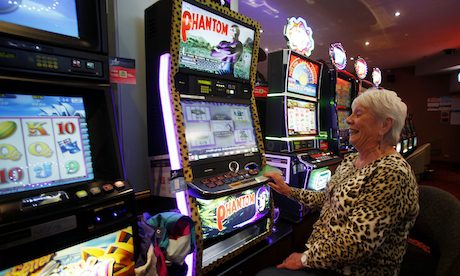Of the items you might expect to see in the workplace of a professor of public health, a poker machine is probably not one.
The Dolphin Treasure pokie sits on a bench in Charles Livingstone’s office at Monash University in Melbourne, too heavy for even two people to move and emblazoned with gaudy dolphins swimming merrily over a treasure chest.
Despite its location in the furthermost corner of the room, it’s impossible to miss.
“From my observations of gaming floors I notice a lot of middle-aged and older women playing it, patting the dolphins and their little fins,” says Livingstone, who has dedicated his career to studying the harms of pokie addiction.
“They seem to be attracted to the cute icons and graphics.
“One time late at night at a bar in regional Victoria, I saw a lady who was hugging the machine in a very affectionate manner. Research has shown there are some people who tend to anthropomorphise poker machines.”
The Dolphin Treasure poker machine, with its brightly coloured sea creatures, is the focus of a landmark legal case brought by Shonica Guy against Crown Casino and the poker machine manufacturer Aristocrat Technologies.
Guy started playing the pokies when she was 17 and she says she lost thousands of dollars over 14 years.
She is being represented pro bono by Maurice Blackburn lawyers.
The case has been unfolding in the federal court in Melbourne over the past two-and-a-half weeks before Justice Debra Mortimer, with Guy’s lawyers arguing that Aristocrat and Crown are engaging in deceptive, misleading and unconscionable conduct by providing Dolphin Treasure poker machines to the public.
The case hinges on the Dolphin Treasure machine because researchers such as Livingstone know more about how, Guy argues, it sets up people for addiction than any other machine on gaming floors in Australia.
Guy’s lawyers are not seeking damages – rather, they want poker machines to be designed fairly and for players to be genuinely informed about their prospects of winning. Continue reading
Sources
- The Guardian, article by Melissa Davey, Melbourne bureau chief for the Guardian.
- Image: Latitude News
